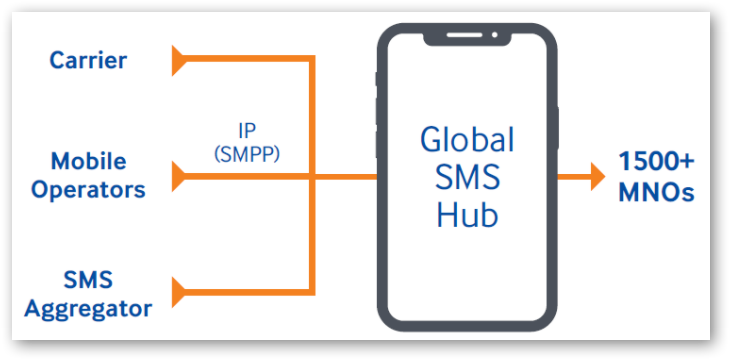On the 12th March 2021, the Falkland Islands Communications Regulator (Regulator) posted “Problems Receiving Some UK Texts” on Facebook, which can be read below. OpenFalklands addressed the same issues in May 2019 and June 2019, so I am disappointed that it seems little has changed.
However, I am more disappointed about what was NOT discussed in the post – a possible solution for creating a reliable Falkland Islands SMS service without the need for additional roaming agreements. One used by many other Mobile Network Operators (MNOs) around the world.

Problems Receiving Some UK Texts
I wholeheartedly agree with the first paragraph. SMS messaging is now a key service as it provides the communications network used by consumers and businesses to prove their online identity. Therefore SMS message services must be ultra-reliable and have low-latency as acknowledging received codes by recipients are subject to strict timeout conditions. Recognition of the importance of SMS services has pushed MNOs to make significant upgrades to their SMS infrastructure. in recent years.
It’s nice to see the provision of a pragmatic ‘workaround’ to the challenge of reliability receiving 2-factor authentication SMS messages. However, the proposals have been working practice for several years by mobile phone users for some time now. However, it hardly seems practical or manageable in the short term let alone the long term.
If a dual-SIM mobile is not used, excessive changing of SIMs could lead to damage. The workaround raises other issues. You will need to send a text message or make a voice call every so often to prevent suspension of the mobile number which will be allocated to another pay-as-you-go mobile in due course. You will need to use the UK mobile number when registering on all your UK websites that use 2-factor authentication (What about other countries?) If the pay-as-you-go number fails, then there would be a lot of hassle to regain access to all these web services.
Surely, there has to be a standardised telecommunications SMS technology/service in spite of the roaming agreement difficulties provided by the Regulator and Sure? There are.
3rd party SMS exchange hubs
The Regulator’s post solely focuses on the need for roaming agreements and assumes that roaming agreements are the only way to exchange SMS messages. They are not. Indeed, even having a roaming agreement in place does not necessarily guarantee SMS are included as I found out with respect to Vodafone in my 2019 post.
The Regulator’s SMS post goes on to explain the difficulties facing Sure in negotiating roaming agreements but roaming agreements, in reality, are only for the Big Boys. However, the reasons quoted are NOT unusual for many smaller MNOs around the world, but this has not stopped them from exchanging SMS with other MNOs. This requirement created the development of 3rd party SMS interconnect services that operate independently of roaming agreements.
Over a decade ago, open 3rd-party SMS ‘hubbing’ services were created based on standardised specifications created by the GSM Association. The GSMA represents the interests of over 750 mobile operators worldwide. Trials of this capability began in 2006 and are now widely available around the world.

“Eliminates the need for signing multiple bilateral agreements with just one agreement.”
Source: Telekom Malaysia
This is not some fringe, untested service but one widely used by MNOs and enterprises of all scales worldwide for many years. From Wikipedia:
“It is clear that SMS Hubbing does not replace bilateral agreements. Every operator has the need to establish roaming agreements in order to provide subscribers with the possibility to roam outside their home network. Outside this framework of main roaming agreements that generate the majority of international traffic for voice and messaging, it makes sense for mobile operators to allocate SMS traffic that belongs to non-connected roaming destinations to an SMS hub.
Benefits of SMS hubbing services.
I’d like to provide some edited snippets from a Mobile Design Guy article though there are a plethora of similar comments to be found on the Internet.
1 “It is unlikely that the full international reach of SMS will be achieved through the implementation of an increasing number of roaming agreements, which are tedious and costly. Moreover, the revenue benefits of an additional interconnection link would not justify the investments required to implement it.“
2 “With the SMS hubbing model, an operator wishing to increase its international SMS coverage does not need to manage several bilateral agreements. Mobile operators can simplify this task by connecting to a hub. The hubbing SMS model reduces the complexity for operators as well as the cost of SMS interworking agreements.
3 “Hubbing SMS aims to provide a higher level of service to SMS by introducing continuous quality of service through service level agreements (SLAs). SMS Hubbing enables extensive international SMS coverage for mobile operators (“customer operators”) by connecting to independent hubs that have multiple agreements with other operators and can thus transmit messages on behalf of customer operators.”
4 “SMS Hubbing allows operators to manage a single legal, technical and billing relationship, instead of hundreds of additional roaming agreements only for SMS. It is clear that SMS Hubbing does not replace bilateral agreements. Each operator must enter into roaming agreements to allow participants to travel outside their original network.”
5 “Apart from this framework of the main roaming agreements, which generate the majority of international traffic for voicemail and messaging, it is useful for mobile operators to assign an SMS-hub to SMS MNOs that are not covered by roaming agreements.”
A typical 3rd party SMS Hubbing Operator Service – Sinch
Although there are many commercial hubbing services available, in my previous post, I pointed to one of the largest – ‘SAP Digital Interconnect’ which was acquired by Sinch in 2020. Here are some of the features of Sinch’s Global SMS Operator Interconnection Service as an example of what they state to be some of the benefits of their service.
1 “Significant improvements in reach and quality by delivering messages to destinations not available through your bilateral agreements
2 “SMS hubbing allows mobile service providers to significantly expand the reach of their SMS services by simplifying the interworking arrangements between operators.”
3 “Reduce the cost and complexity of managing international SMS delivery”.
4 “Connectivity and interoperability around the world. One connection to more than 1,000 operators and service providers.”
Roundup
I would simply like to ask three questions?
1 Are there any valid technical or commercial reasons why Sure have not implemented a connection to a 3rd-party SMS hubbing service?
2 Are FIG, the Regulator and MLAs aware of the availability of SMS hubbing services?
3 If they are, why did the post not provide the reasons for Sure for not using an SMS hubbing service to provide an improved Falkland Islands SMS service?
Chris Gare, March 2021.Copyright: OpenFalklands.com
